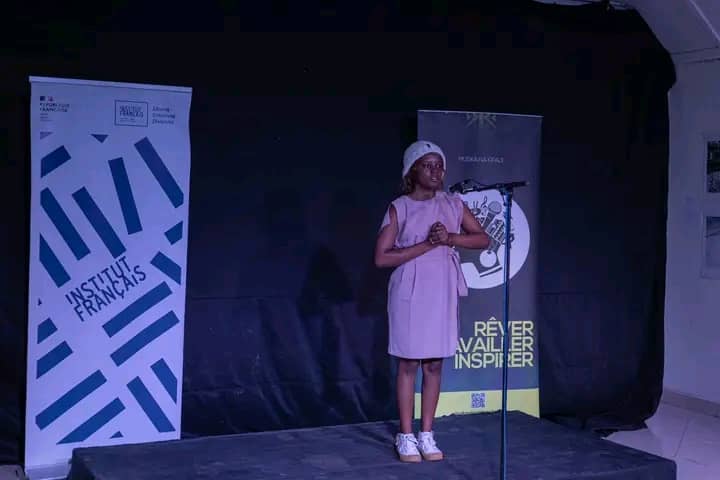Across African cities from Dakar to Kigali, Nairobi to Kinshasa, a new rhythm is rising. It’s not rap, not theatre, not exactly poetry. It’s slam; raw, emotional, and deeply human.
Slam poetry has become more than a form of art; it’s a movement. A generation once silenced by fear, poverty, or inequality has found a microphone and a stage and with them, a new kind of freedom.
Why Youth Choose Slam
For many African youth, slam is not about performance but about release.

Unlike traditional poetry bound by form, slam allows emotion to lead. It welcomes anger, laughter, faith, and vulnerability all in the same verse.
In a society where young voices are often ignored, slam permits to feel and be heard.
It has become a peaceful rebellion, words replacing weapons, truth replacing silence.
Through slam, young people reclaim power: the power to name their pain, confront injustice, and inspire hope.
My Journey Through Words
I discovered slam as a teenager searching for my voice.
On stage, my trembling became rhythm. My confusion became meaningful. My silence, melody.
Slam taught me that storytelling heals. Every performance connected me with others carrying invisible wounds; people who turned pain into poetry, tears into truth.

Even after stepping away from slam, the art never left me. It reminded me that words can transform even the most fragile soul into light.
Slam as Community and Healing
Across Africa, youth-led collectives and festivals are transforming slam into safe spaces for healing.
In Goma, Kigali, and Nairobi, young poets gather to share verses about mental health, inequality, and freedom.
These are more performances they are circles of empathy, where stories replace judgment and connection replaces shame.
Slam is proving that community doesn’t need to be built on similarity, but on shared humanity.
Each performance becomes a mirror reflecting the strength of a generation that refuses to stay silent.
When words are spoken with truth, they carry the power to rebuild what violence or silence destroyed.
Slam is doing just that, turning poetry into protest, and pain into purpose.
Africa’s youth are no longer waiting for permission to speak.
Through the rhythm of their stories, they are writing a new narrative one verse at a time.
